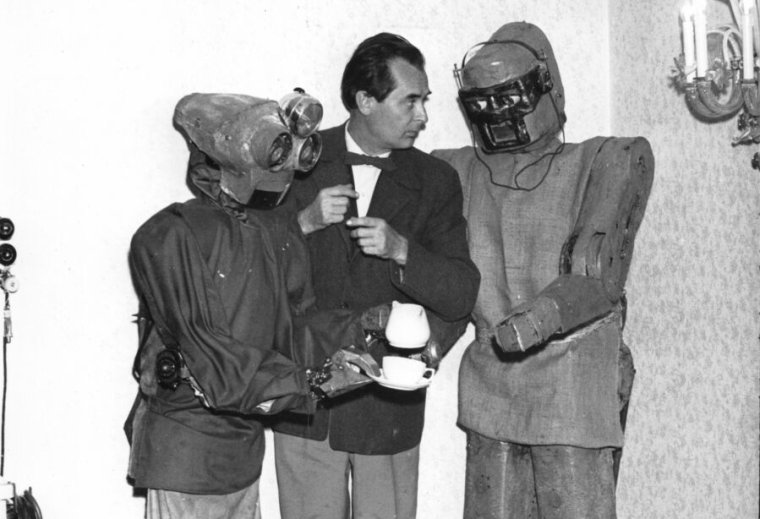Enlarge / Claus Scholz is offered tea and moral encouragement by his robots, MM7 and MM8, also known as “Psychotrons,” in 1950 Vienna. This could be us, but many home automation platforms are only playing at being helpful. (credit: Gamma-Keystone via Getty Images)
Google today released a new Android OS with some modest improvements, a smartwatch with an old-but-still-newer chip, and a Pixel 8 whose biggest new feature is seven years of updates. But buried inside all the Google news this week is something that could be genuinely, actually helpful to the humans who get into this kind of gear—help for people setting up automations in their homes.
It’s easy to buy smart home gear, and it’s occasionally easy to set it up, but figuring out all the ways that devices can work with one another can be daunting. Even smart home systems with robust scripting abilities mostly let users develop great ideas for connecting two or more devices. That’s where, according to Google, AI can help.
Google says it will use AI (the company’s broad definition of AI, at least) at two different levels. At an app level, Google Home can start condensing all the notifications from cameras, sensors, and other devices into a streamlined summary, patched together by generative AI, and which you can respond to with natural language.
Read 12 remaining paragraphs | Comments

